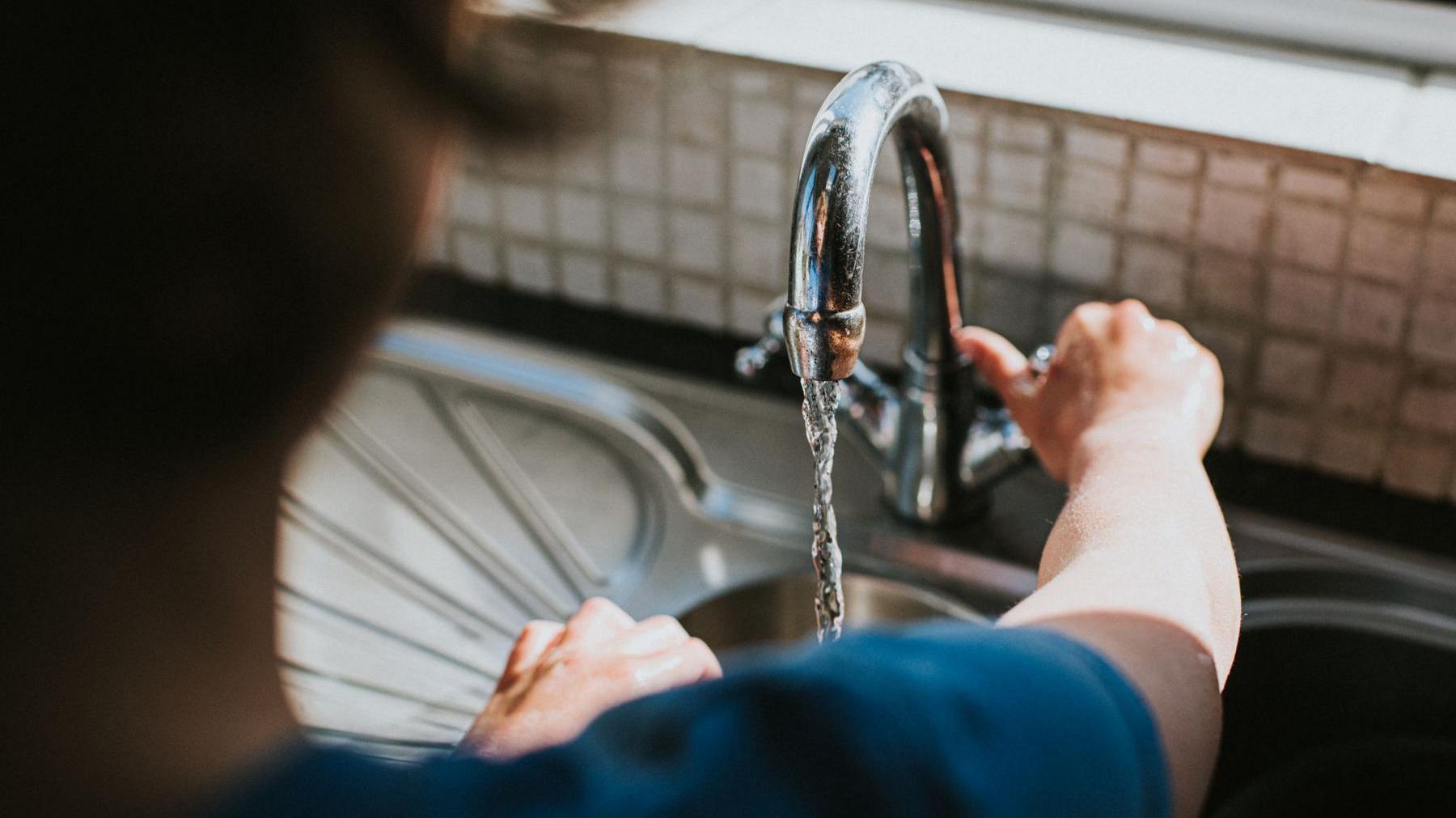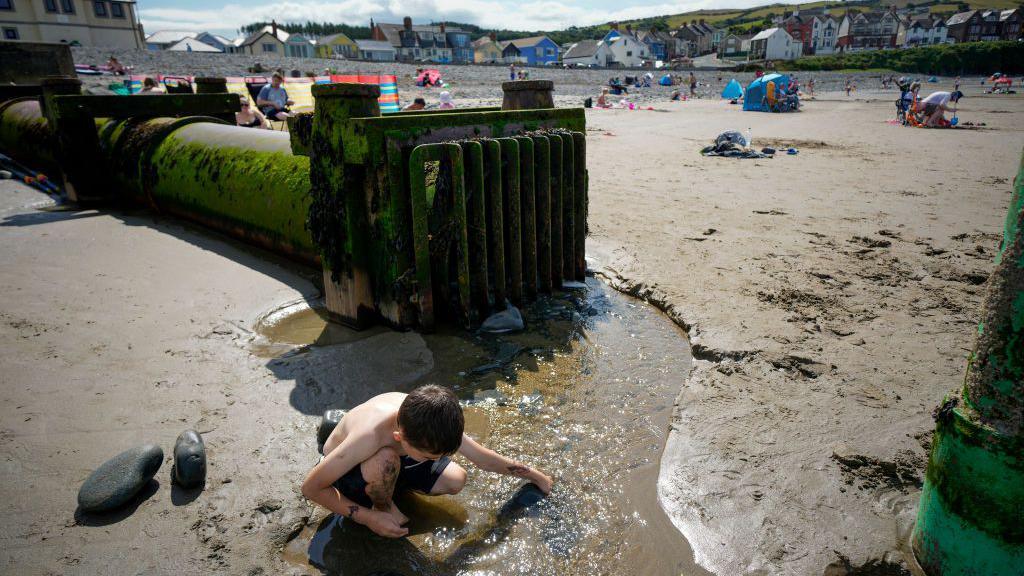Underperforming Welsh Water ordered to pay £24m

Welsh Water is one of only three water companies across Wales and England to be placed in the regulators worst performing category
- Published
Welsh Water has been ordered to pay a £24.1m underperformance penalty by industry regulator Ofwat.
It is one of only three water companies in Wales and England to be placed in the regulator's lowest "lagging" category.
It comes as water firms across the two nations have been ordered to pay a total of £158m after missing key targets on pollution, leaks and supply interruptions.
A Welsh Water spokesperson said the company was "working hard" to implement improvements its customers expect.
Anti-pollution law to threaten water bosses with jail
- Published5 September 2024
All water firms now investigated for sewage spills
- Published16 July 2024
Welsh Water's penalty - up from £18.3m for the last financial year - is the fifth largest handed out by Ofwat this time around.
Another water company, Hafren Dyfrdwy, which covers parts of mid, north and south Wales, has been ordered to pay a penalty of £200,000.
Not a single provider across Wales and England has been placed in the regulator's top "leading" category - with Welsh, Anglian and Southern Water "lagging" and the rest "average".
Welsh Liberal Democrat leader Jane Dodds, a Mid and West Wales Member of the Senedd (MS), said her party "have long campaigned for the urgent clean-up of our rivers and coastlines and for harsher punishments for those guilty of sewage dumping".
She said: “For far too long now, the people of Wales have been saddled with rising water bills while our rivers and coastlines are being polluted with sewage.
"It’s clear that our Welsh water companies have routinely fallen short of the standards expected of them."

Welsh Water released sewage into rivers, lakes and the sea around Wales for more than 916,000 hours in 2023
Ofwat judges the performance of water companies in England and Wales each year and - if they fail to meet targets - it can restrict the amount of money they can take from customers.
In 2023, Welsh Water released sewage into rivers, lakes and the sea around Wales for more than 916,000 hours - about 20% of all hours of discharges across Wales and England.
Last month, the UK government announced legislation to tackle pollution that could see poorly performing water company bosses banned from receiving bonuses or even sent to prison.
Conservative shadow minister for climate change Janet Finch-Saunders said there was "no quick nor easy fix to this pollution crisis" and "improvements will take time, detailed plans, and a considerable amount of money".
She added: "As such, how does giving the fine money to customers help address the issue? Surely, it would be more effectively used on infrastructure improvements schemes in Wales.”
David Black, the regulator's head, said this year's performance was "stark evidence that money alone will not bring the sustained improvements".
"It is clear that companies need to change and that has to start with addressing issues of culture and leadership," he said.
"Too often we hear that weather, third parties or external factors are blamed for shortcomings."
'Improvements take time'
These penalties are separate to an ongoing Ofwat investigation into all 11 of England and Wales's water firms, which has seen three companies ordered to pay £168 million in fines.
A Welsh Water spokesperson said: “We are working hard to deliver the improvements that we know we need to make, and our customers expect of us and have been outlined by Ofwat.
"Such improvements take time and are supported by detailed investment plans to ensure progress.
“Between 2025-2030 we’ve put forward a record investment package of £4bn.
"This investment will drive improvements for customers and ensure a high standard of performance across the company."
Analysis
By Steffan Messenger, BBC Wales environment correspondent
Reports like this have chipped away at Welsh Water's reputation in recent years.
It has been downgraded repeatedly too by another regulator - Natural Resources Wales - going from "industry leading" to "requires improvement".
Afonydd Cymru - which represents rivers groups in Wales - describes it as a "glidepath" of decline.
There could be more difficult reading on the way - as OFWAT conducts individual investigations into water firms over their environmental performance.
Welsh Water says it recognises a "stepchange" is needed, and has promised a "record investment package" of £4bn for the latter half the decade - with over half of this dedicated to environmental improvements.
It does mean though that customers shouldn't expect today's penalty to result in a noticeable cut in bills.
The refund - due in 2025/26 - will be dwarfed by an expected long-term increase in how much we pay for our water, as companies like Dwr Cymru grapple with the range of challenges being highlighted today.